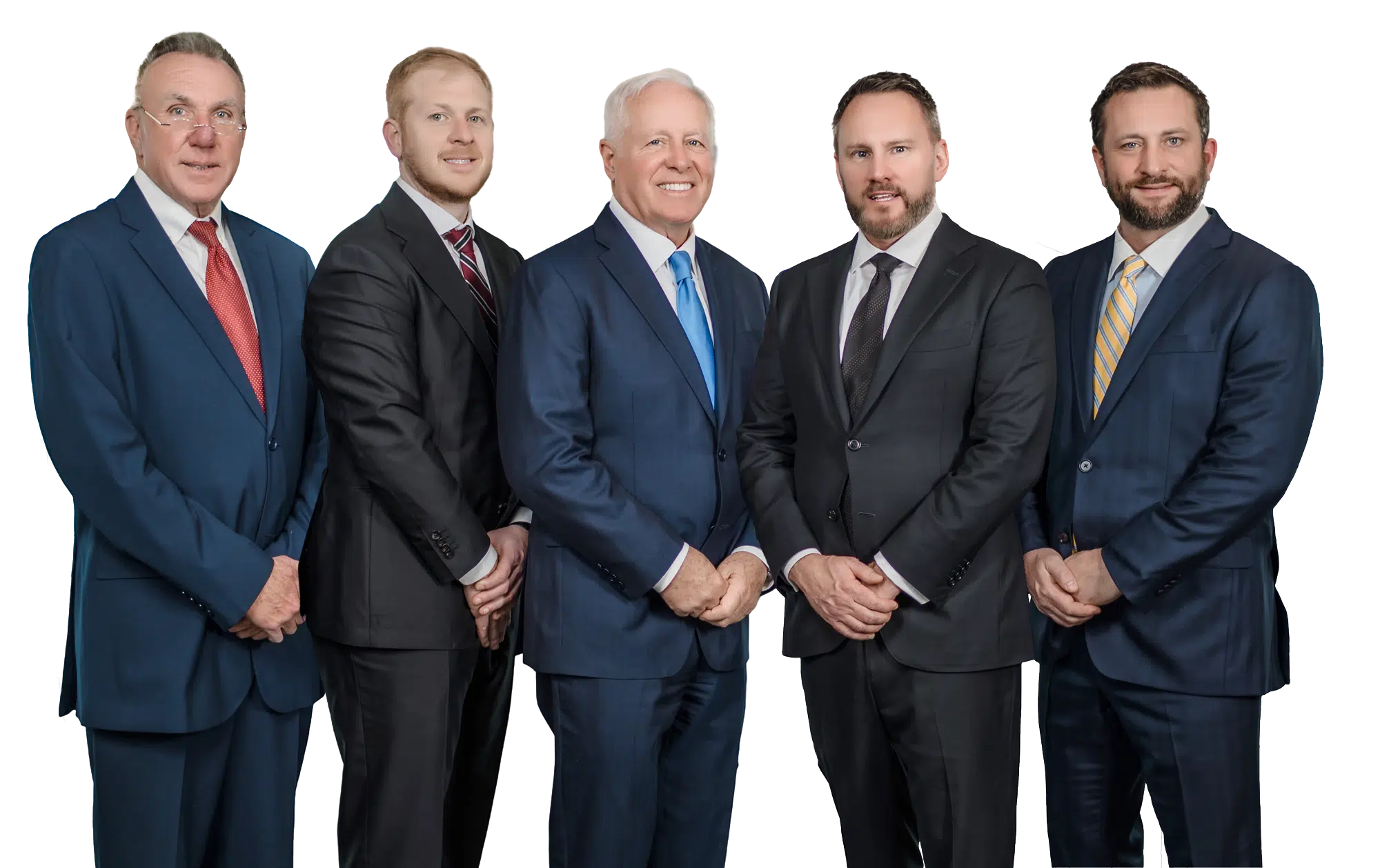If you’re in a Pennsylvania car accident, you must file a claim under your automobile insurance policy’s personal injury protection, or PIP, coverage before pursuing other compensation options. Your PIP coverage will pay for a portion of your medical expenses no matter who’s at fault for the accident.
PIP insurance can add a layer of complexity to auto accident cases. At Cordisco & Saile LLC, we know how personal injury protection coverage works in Pennsylvania. When you turn to us after a car accident, we’ll help you understand your options and seek maximum compensation on your behalf.
What Is PIP Insurance?
Pennsylvania is a no-fault accident state. Thus, all drivers must purchase a minimum level of PIP coverage.
If you’ve been injured in an accident in Pennsylvania, you must turn to your own PIP insurance coverage for compensation. This differs from a fault state, where you must look to the at-fault driver’s liability insurance coverage to pay for your damages. Both you and your passengers may benefit from your PIP coverage after a car accident injury, regardless of who’s at fault.
What Is the Minimum PIP Coverage Required in Pennsylvania?
Pennsylvania requires drivers to carry a minimum of $5,000 in medical benefits coverage, also known as PIP or first-party benefits. It also requires the following liability coverage:
- $15,000 per person and $30,000 total per accident for bodily injury or death
- $5,000 for property damage
Your insurance coverage limits are the maximum amount the insurance company will pay after an accident. You have the option to purchase coverage with limits higher than the state’s requirements. Getting as much PIP coverage as you can afford is generally a good idea, especially if you have less adequate health insurance coverage, as accident-related medical expenses often exceed $5,000.
Failure to have proper PIP and liability coverage can result in suspension of your driver’s license and vehicle registration. It can also mean you’re personally responsible for all parties’ damages—including your medical expenses—if you cause an accident.
Get legal help from a team that will never stop fighting for you.
What Does PIP Insurance Cover?
PIP insurance primarily covers medical expenses in Pennsylvania. Any past or future medical bills related to a car accident may be eligible for PIP coverage. Examples of covered expenses under PIP include:
- Ambulance rides
- Hospitalizations
- Surgeries
- Medical imaging, such as X-rays or MRIs
- Durable medical equipment
- Medications
- Physical therapy
You can purchase up to $100,000 in medical benefits coverage. For more comprehensive coverage, you can purchase optional coverage for “extraordinary medical benefits” up to $1.1 million.
Medical benefits coverage is the only form of coverage required by Pennsylvania. However, you may voluntarily purchase PIP coverage for lost wages. This form of PIP coverage pays for 80 percent of your weekly income up to your policy limit if your injury prevents you from working. Your insurance company must offer at least $2,500 per month up to $50,000 total in income loss benefits.
You may also purchase death benefits that cover funeral and burial expenses and accidental death benefits, which automatically pay the policy limit to the next of kin. Insurers must offer at least $2,500 in funeral benefits and $25,000 in accidental death benefits.
PIP does not cover property damage, including damage to your vehicle and non-economic losses like pain, suffering, and emotional distress.
How Does the Claim Process Work for PIP Insurance?
Here’s a breakdown of the steps in the claim process for personal injury protection insurance:
- Notifying the insurance company: Notify your insurance company of the accident as soon as possible. Only provide basic information about where and when the accident occurred. Don’t provide details about your injuries without speaking with a Pennsylvania car accident lawyer first.
- Gathering evidence: You’ll need to gather evidence of your damages before you file a claim. The insurance company expects proof that the accident caused your injuries. It will also want evidence of the value of your damages. Key evidence may include medical records, employment records, photos of visible injuries, receipts, and bills.
- Filing a claim: You’ll initiate your claim by filing the appropriate forms with your insurance company.
- Submitting documentation: Next, you’ll submit the evidence you gathered. The insurance company may request additional documentation.
- Negotiating a settlement: The insurance company may offer a settlement after reviewing your claim. You have the right to negotiate the settlement amount, and it’s often in your best interest to do so. Your lawyer can help you negotiate a fair settlement with the insurance company.
Your Legal Options After a Motor Vehicle Accident
PIP insurance often does not provide enough coverage for serious injuries. This will likely be true even if your coverage exceeds Pennsylvania’s minimum requirements because you cannot receive compensation for your non-economic damages. Fortunately, you have options for additional compensation.
While PIP is the first line of defense when you’re hurt in a car accident, drivers in Pennsylvania must also carry liability insurance. If your damages exceed your PIP limits, you may be eligible to claim additional compensation from the at-fault driver’s liability insurance. You could also file a personal injury lawsuit against the at-fault party directly.
To pursue personal injury compensation beyond your PIP coverage, you must prove that someone else is liable for your injuries by providing evidence that their negligence or intentional wrongdoing caused the accident. This process can be challenging, as the insurance company will likely use various tactics to minimize the payout.
In addition, Pennsylvania requires drivers to select either full tort or limited tort coverage. The type of coverage you have selected will determine the types of damages you can pursue in a claim against an at-fault party.
With full tort coverage, you can recover the full extent of your economic damages, such as medical bills, and your non-economic damages, such as pain and suffering.
On the other hand, limited tort coverage restricts the types of damages you can pursue from the at-fault party after a crash. Generally, you can pursue your economic damages for out-of-pocket losses such as medical bills and lost wages. However, you can only recover pain and suffering and other non-economic damages in specific, limited circumstances, such as injuries resulting in “death, serious impairment of bodily function, or permanent serious disfigurement.”
Working with an experienced personal injury attorney is key to getting maximum compensation for your losses. Our attorneys can help you evaluate your options and guide you through your next steps. If we pursue a personal injury claim, we can fight against the insurance company’s tactics and advocate for your best interests.
More Questions About PIP Insurance? Reach Out Today
Having an experienced and skilled attorney who knows how personal injury protection coverage works in Pennsylvania can make all the difference after an accident. At Cordisco & Saile LLC, our knowledge and persistence have allowed us to recover over $100 million for our valued clients.
If you or someone you love has been injured in a car accident, you can benefit from our 30+ years of experience fighting for people like you. Contact us today at 215-642-2335 for a free consultation about your rights and options.

Serving as a personal injury attorney in Pennsylvania, Michael Saile has been honored as both a Brain Injury Top 25 Lawyer by National Trial Lawyers and a 2024 Super Lawyer. He earned his J. D. at Widener University School of Law where he was a member of the Moe Levine Trial Advocacy Honor Society. Saile is also the author of two publications titled “Not Another Bad Lawyer” and “Don’t Crash Again”.



